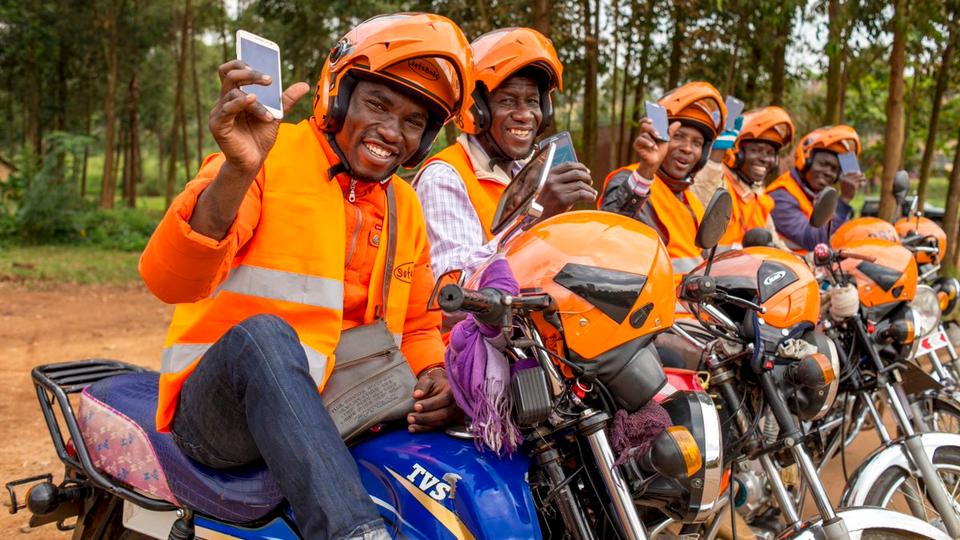In March, SafeBoda launched in Ibadan ,Nigeria. At the time, I wrote that Ibadan was set to be the next front for Nigeria’s bike hailing wars. But the Kings of Blitzkrieg marketing, OPay pulled out of the space, and seemed to take all the excitement with them.
The excitement that greeted the rise of Nigeria’s motorcycle-hailing sector is long gone. It has been squashed by regulations.
While Ibadan has remained pro-motorcycle hailing, ORide has stopped operations, leaving the market to MAX.ng and SafeBoda. MAX.ng may be hungover by their Lagos experience, but without seeing the numbers, it is difficult to know how committed they are to owning the motorcycle-hailing market in Ibadan.
While MAX.ng does not disclose its numbers, SafeBoda shared in June that it had completed 100,000 rides. Two months after that, it says it has completed 250,000 rides. One reason the company may be open to sharing these milestones is to prove that its decision to launch in Ibadan, instead of Lagos as expected, was the right one.
Yet, these milestones are not without growing pains and SafeBoda is far from reaching critical mass in Nigeria. There are many challenges about being in Ibadan and the company’s country manager, Babajide Duroshola tells TechCabal that one of the first challenges was getting drivers to sign on.
Ride hailing often presents a chicken and egg problem. Drivers sign up if you can assure them that they will find customers and customers want the assurance that you have a spread of drivers in their city.
Ibadan is Nigeria’s largest city by geographical area so attempting to cover the whole city may leave the most ambitious of companies spread thin. The pragmatic decision for the company was to set up a geofence and cover only a fourth of the city. Convincing drivers to sign up was the tricky part.
“First you need the believers. The drivers that wait with you while you’re getting five trips per day are the key to unlocking the skeptics waiting on the sidelines. In Ibadan, there was an extra complexity: a competitor that was snagging drivers by promising big benefits.”
“If the average driver earns ₦2500 ($6) daily and you have a competitor that comes into the system to pay ₦10,000 ($25), it creates a false sense of earning for the drivers,” Duroshola tells TechCabal.
While managing driver expectations on the one hand, there’s also the need to prevent driver fraud. One such situation was SafeBoda’s promo that made a customer’s first ride free.
“We realised that with some kind of promotions, the drivers and customers have incentives to steal. You could find a driver who had up to 24 SIM cards to request himself so he can request for himself and get paid.”
With some hard learning and tweaks, the company has switched to loyalty programs and promises free rides to customers who make a certain number of trips. These loyalty programs and promos push SafeBoda’s prices below the existing market price. In Ibadan, a city where transportation is inexpensive, how sustainable is this type of strategy?
Duroshola’s belief is that being cheaper than the market price is the right way. The next step would be figuring out volume. The idea is that if you hit critical mass, you can flip the market. Critical mass won’t happen without the drivers being uber focused on their earnings and completing a lot of trips.
“We’re trying to get drivers to care about their daily earnings. Within the first three months, we had twenty drivers that earned ₦4.4 million ($11,335),” Duroshola shares. It’s hard to know what these numbers translate to but one thing is clear, getting its drivers to make trips is as important as keeping them.
At the moment, the company says it has more customers than drivers and one of the problems it faces is that a lot of the drivers it wants to onboard do not have licences. It is hardly surprising, given that many of the commercial motorcycle operators see licences as an extra cost.
But even for drivers who have licences, COVID-19 has affected the onboarding process. At the onboarding session I attended in March, there were up to 50 drivers in attendance. Now social distancing rules means that training is now done in clusters and will need more centers and more energy.
In the end, Duroshola says “while we need to onboard drivers, we need to find people whose first instinct isn’t fraud.”
Away from the problems of driver fraud, there are new conversations on logistics regulation in Nigeria. Although Oyo state has been pro-business so far, regulatory uncertainty is more a feature than a bug in Nigeria.
Earlier in the year, there was some chatter that Oyo state also considered a ban on commercial motorcycles. In dealing with such uncertainty, Duroshola believes that constantly engaging the government is important.
“From a regulatory standpoint, you have to be close to the government and play an advisory role. More importantly, picking your regulatory battles is key. We have challenges with the park managers who want to collect levies on weekends, even though they are only allowed to collect these monies on weekdays. They also introduced a levy for the chairman. So you have to engage them and pick your battles.”
One regulation SafeBoda is not fighting is the decision of the Oyo State Signage and Advertisement Agency (OYSAA) to designate SafeBoda helmets and jackets as outdoor adverts.
There’s also some chatter about a proposed transport licencing fee in the state for motorcycle hailing services. Duroshola says he is not opposed to licencing but is more bothered about the government extracting too many fees.
“I don’t necessarily think licences are bad but the problem is the value you’re getting from the licences. If you give me a ₦25 million licence, I should have the kind of playing ground to be able to recoup my investment.
“The bigger problem is multiple taxation. If I’m paying for a transport licence, it should be all encompassing.”
While the company will put its ears to the ground for news about regulation, its immediate goals are simple: to drive the utility of each of its riders so they can move anything, from people to food or groceries. But before that happens, it will need to hit critical mass.





















